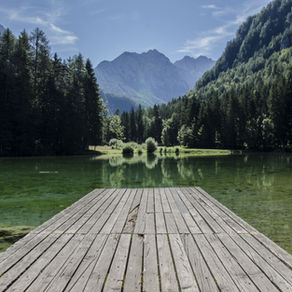Can Vedanta help transform the world?
- Andreas Sternowski
- 19. Sept. 2023
- 2 Min. Lesezeit
Aktualisiert: vor 3 Tagen
If we need a radical change in the world, it's not sufficient to change social systems or pass new laws. It really requires a change of consciousness: A different way of thinking of the earth and of man is necessary. If we think of the earth in the way, we in the West have been thinking of it – as something to use for our own benefit – then even if we try to change systems, we will at the end come back to the same result. For radical change, a change in the world view is needed.

How to Transform the World - Answer from a Vedantin
We feel more and more clearly that the systems of society and civilization in general cannot go on like this. They lead us into dangerous crises: ecological, political, social, economic...
There is no way around a fundamental transformation. But how can society be fundamentally transformed? With this question I went to Gretz near Paris to talk to Swami Atmarupanada, a monk of the Ramakrishna Order and a Vedantin.
Swami Atmarupananda is a US-American, has headed several centers of the Ramakrishna Mission, and he actively participates in interspiritual dialogue. In his talks, he often speaks about a new model for social and economic development that does not destroy local values and traditions or the environment.
Can Vedanta help change ourselves and the world?
We ourselves create the world we live in by thinking in a certain way, believing in certain things, and pursuing certain goals. This fact should give us hope: If enough people would change their thinking and the way they understand themselves and the world, humanity could learn from the current crisis and human civilization could take a positive turn.
For radical change, a change of thinking is needed. And if enough people do that, then it will have a visible effect.
Vedanta postulates the unity of all things. When I hurt someone, I end up hurting myself. When I destroy nature, I am in fact destroying myself. The worldview of Vedanta can therefore help Western society to build a civilization based on non-violence, mutual respect and harmony.
Listen to the interview with Swami Atmarupananda about it. It is divided into two parts:


























Comments